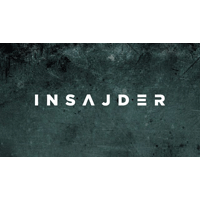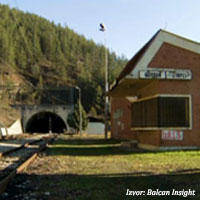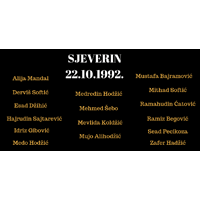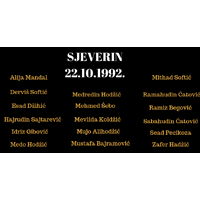(srpski) Insajder debata: Promovisanje haških osuđenika je falsifikovanje činjenica

Sorry, this entry is only available in srpski.


Sorry, this entry is only available in srpski.
 Today, exactly two years have passed since the Humanitarian Law Center (HLC) filed a criminal complaint with the Office of the War Crimes Prosecutor (OWCP) against Dušan Lončar, former Commander of the Second Proletarian Elite Motorized Brigade of the Yugoslav People’s Army (JNA 2nd PEMBR), for the crime committed in the village of Lovas (Croatia) in October 1991. The HLC informs the public that since the lodging of the criminal complaint, the OWCP has done nothing to investigate this crime and prosecute those responsible.
Today, exactly two years have passed since the Humanitarian Law Center (HLC) filed a criminal complaint with the Office of the War Crimes Prosecutor (OWCP) against Dušan Lončar, former Commander of the Second Proletarian Elite Motorized Brigade of the Yugoslav People’s Army (JNA 2nd PEMBR), for the crime committed in the village of Lovas (Croatia) in October 1991. The HLC informs the public that since the lodging of the criminal complaint, the OWCP has done nothing to investigate this crime and prosecute those responsible.

 When activists protested against an event organised by the ruling party promoting a convicted war criminal, we were fined – showing again how Serbian officials still reject the truth about the 1990s conflicts.
When activists protested against an event organised by the ruling party promoting a convicted war criminal, we were fined – showing again how Serbian officials still reject the truth about the 1990s conflicts.
In November 1991 in Vukovar in Croatia, around 260 people were killed in what is known as the Ovcara massacre. On Tuesday, we who raised our voices against the perpetrators of this crime were fined by a Serbian court.

Sorry, this entry is only available in srpski.

Af ter three and a half years, the Belgrade Court of Appeal has finally confirmed the indictment of the Office of the War Crimes Prosecutor (OWCP) against five members of the Višegrad Brigade of the Republika Srpska Army (VRS) for the crime committed in Štrpci. In this crime, 20 non-Serb civilians were kidnapped from a train travelling from Belgrade to Bar, and later killed. The Humanitarian Law Center (HLC) urges the institutions of Serbia to approach the processing of this crime seriously and responsibly, and without any delay, and thereby restore the trust of the victims and public in the institutions responsible for the prosecution of war crimes.
ter three and a half years, the Belgrade Court of Appeal has finally confirmed the indictment of the Office of the War Crimes Prosecutor (OWCP) against five members of the Višegrad Brigade of the Republika Srpska Army (VRS) for the crime committed in Štrpci. In this crime, 20 non-Serb civilians were kidnapped from a train travelling from Belgrade to Bar, and later killed. The Humanitarian Law Center (HLC) urges the institutions of Serbia to approach the processing of this crime seriously and responsibly, and without any delay, and thereby restore the trust of the victims and public in the institutions responsible for the prosecution of war crimes.

 Today we mark the 26th anniversary of the abduction and killing of 17 citizens of Serbia of Bosniak nationality from Sjeverin near Priboj, who were taken captive by members of the Republika Srpska Army (VRS) during the conflict in Bosnia and Herzegovina (BiH). The Humanitarian Law Center (HLC), the Sandžak Committee for the Protection of Human Rights and Freedoms (Sandžak Committee) and Women in Black wish to remind the public that the long-standing search by the families for the mortal remains of the victims has not yet ended, and that it is unacceptable that the institutions of Serbia, even after 26 years, still persist in refusing to provide victims’ families with fair compensation, support and recognition.
Today we mark the 26th anniversary of the abduction and killing of 17 citizens of Serbia of Bosniak nationality from Sjeverin near Priboj, who were taken captive by members of the Republika Srpska Army (VRS) during the conflict in Bosnia and Herzegovina (BiH). The Humanitarian Law Center (HLC), the Sandžak Committee for the Protection of Human Rights and Freedoms (Sandžak Committee) and Women in Black wish to remind the public that the long-standing search by the families for the mortal remains of the victims has not yet ended, and that it is unacceptable that the institutions of Serbia, even after 26 years, still persist in refusing to provide victims’ families with fair compensation, support and recognition.
On October 22nd 1992, members of the “Osvetnici” (“Avengers”; text available in Serbian), a paramilitary unit which operated under the auspices of the Republika Srpska Army, stopped a bus of the Užice-based company “Raketa” near the bridge over the River Lim in Mioče (BiH). The bus was travelling on its usual Priboj-Rudo-Priboj route. After the identities of every passenger had been checked, 16 Bosniaks were taken out of the bus: Mehmed Šebo, Zafer Hadžić, Medo Hodžić, Medredin Hodžić, Ramiz Begović, Derviš Softić, Mithad Softić, Mujo Alihodžić, Alija Mandal, Sead Pecikoza, Mustafa Bajramović, Hajrudin Sajtarević, Esad Džihić, Idriz Gibović, Ramahudin Ćatović and Mevlida Koldžić. They were taken by military truck in the direction of Višegrad, where they were brutally beaten, and then killed on the banks of the River Drina. The night before this event, Sabahudin Ćatović was abducted in front of his family house in Sjeverin. He has disappeared without a trace.

 A Kosovo Albanian woman has for the first time spoken out on TV about her experience as a rape victim during the war – and about her unsuccessful struggle for justice in court.
A Kosovo Albanian woman has for the first time spoken out on TV about her experience as a rape victim during the war – and about her unsuccessful struggle for justice in court.
Breaking the silence about rape in Kosovo, Vasfije Krasniqi Goodman, a survivor of wartime sexual violence, has become the first woman to speak out about her experience during the Kosovo war between 1998 and 1999 in an interview.
Krasniqi Goodman sought justice before the courts in Kosovo, but in 2014 the Supreme Court acquitted two Serb policemen, initially indicted for her rape, on all charges.
Although she broke a taboo by speaking out on her ordeal and inspired many by her public testimony, human rights organizations are warning that justice appears to remain beyond reach for Krasniqi Goodman, and for many other survivors of wartime rape.